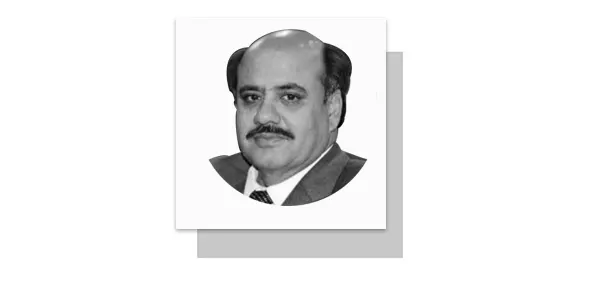THE Europeans were disappointed by President Volodymyr Zelensky’s brusque treatment in the Oval Office and alarmed by President Donald Trump’s one-to-one dialogue with Russian President Putin to end the war in Ukraine.
They believe that appeasing Putin would further their existential threat and has reignited the longstanding issue of how Europe can fend for itself.
The fear that Trump could withdraw U.S.military protection of the continent has forced Europeans to confront a stark reality that they must adopt a consensual approach to the security of Europe.
The deteriorating security environment and heightened threat perception have led to the announcement of a ‘Coalition of Willing’ in London on March 2, 2025.
This is a clear sign of the Europeans’ realization that they must be capable and prepared to take the continent’s defense into their own hands.
The recent developments underscore the urgency and seriousness of the situation-whether Europeans like or disapprove of them, they must learn to live without U.S.security patronage in the rapidly transforming global strategic environment.
President Trump’s statements to turn Canada into the 51st state, to annex Greenland from Denmark and Panama Canal, to forcibly displace 2 million Palestinians to create the Gaza Riviera, and undiplomatic treatment of his Ukrainian counterpart at the Oval Office have multiplied the chaos in the international politics.
His transactional foreign policy has dented transatlantic solidarity, endorsed multipolarity, undermined multilateralism, and jolted the so-called rules-based order in the global international society.
These developments may satisfy his voters but drive a wedge between Washington and its allies, especially European nations, undermining America’s credibility and reducing its primacy in the international system.
The U.S.reduced military aid to Ukraine and communicated to the latter that the U.S.and Ukraine could have a better economic relationship instead of having a military commitment.
On February 5, 2025, the U.S. had cut off intelligence sharing with Kyiv.
Indeed, the discontinuation of intelligence sharing would seriously hamper the Ukrainian military’s ability to target Russian forces.
It’s a debatable conjecture that without substantial American military assistance, the Europeans cannot defend Ukraine.
Notably, the European defense budget was $457 billion in 2024, and Russia’s total military expenditure grew by 41.9% in real terms to reach an estimated $145.9 billion (RUB13.1trn) during the last year.
Moreover, Europe holds the most substantial hand against Russia, i.e. , the overwhelming majority of Russia’s estimated $300 billion in frozen assets are held in Europe.
The Europeans are acutely aware that it’s better to be Washington’s ally than its enemy.
This realization has led them to a firm decision-they must increase their defense expenditure to ensure their security.
The British, in particular, have shown astuteness in assessing Trump’s strategic outlook.
In a joint conference with Trump on February 27, 2025, Starmer announced that the U.K. will increase its defense spending to 2.5 percent of its GDP by 2027, with a long-term goal of reaching 3 percent.
Germany has also signaled its intent to increase its defense budget to $107 billion a year.
French President Emmanuel Macron has even signaled his willingness to extend his country’s nuclear deterrent to other European nations.
This resolute commitment to defense spending is a clear indication of Europe’s determination to defend itself.
The Europeans’ steady increase in the defense budget could enable them to defend Europe.
However, it takes years.
According to the EU chief Ursula von der Leyen’s plan (dubbed ReArm Europe), the European Union has to mobilize some 800 billion euros for Europe’s defense and support for Ukraine.
Therefore, they adopted a submissive tactic to keep the U.S. engaged militarily in the European security architecture.
The European leaders, including France’s President Emmanuel Macron, Germany’s Chancellor Olaf Scholz, Italy’s Prime Minister Giorgia Meloni, and Canada’s Prime Minister Justin Trudeau, gathered in London on the invitation of the U.K.
Prime Minister Keir Starmer to deliberate on the future of Ukraine.
Starmer aptly described Europe as being “at a crossroads in history.
” The leaders, while expressing their resolve to continue assisting Ukraine in the war, also managed to convince Zelensky to apologize to President Trump.
This demonstration of solidarity and support for Ukraine is a testament to the Europeans’ commitment to the region’s strategic stability.
President Zelensky’s confession letter pleased President Trump.
On March 6, 2025, U.S. Special Envoy to the Middle East, Steve Witkoff, said, “He felt that Zelensky’s letter was a very positive first step.
There was an apology.
There was an acknowledgment that the United States has done so much for the country of Ukraine and a sense of gratitude.
” Consequently, Washington agreed to involve Kyiv in negotiations to chalk out a ceasefire framework with Russia.
President Trump is pursuing his “America First” foreign policy agenda and pressuring the Europeans to invest robustly in defense.
Thus, the European nations must ramp up defense spending and military hardware production to meet future security challenges.
—The writer is Prof at the School of Politics and IR, Quaid-i-Azam University. (jaspal_99@hotmail.com)










